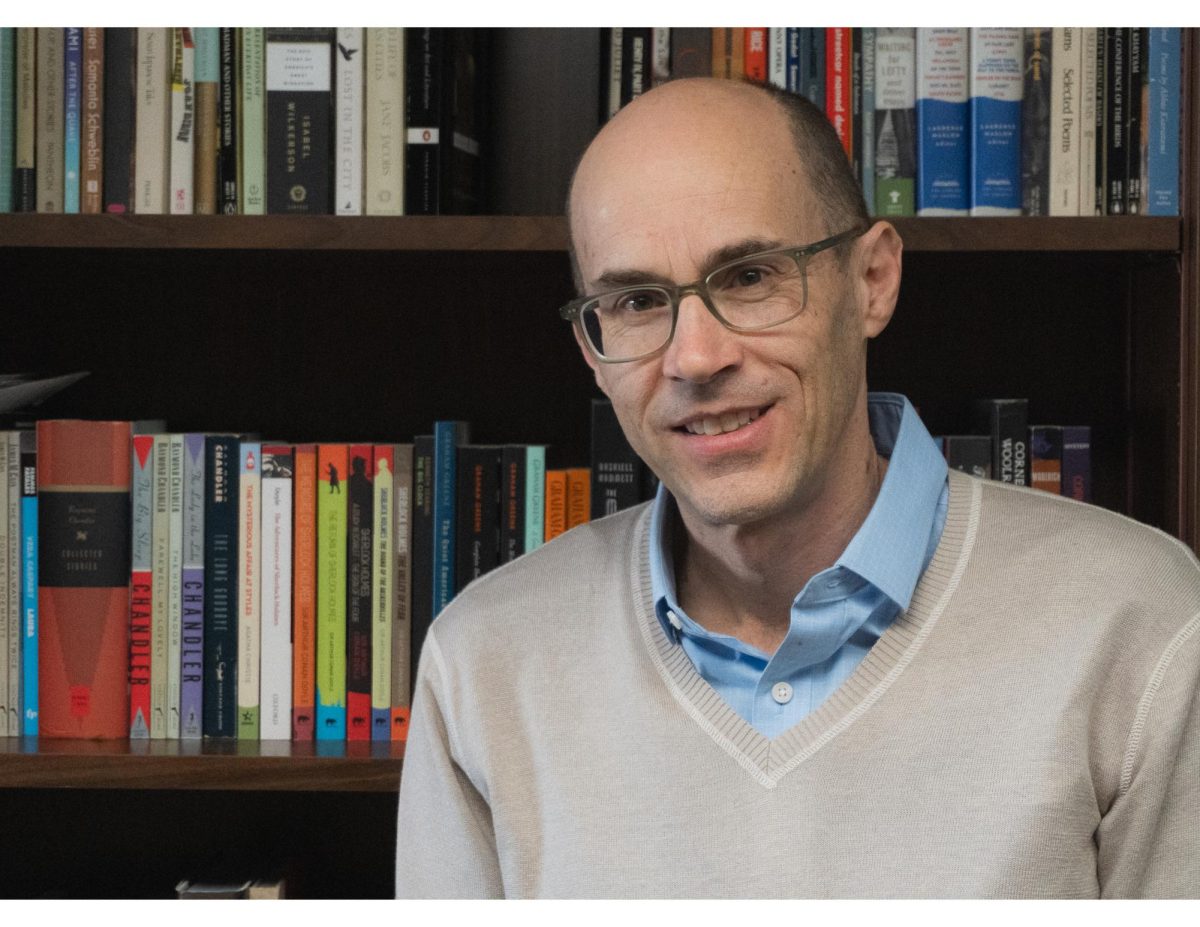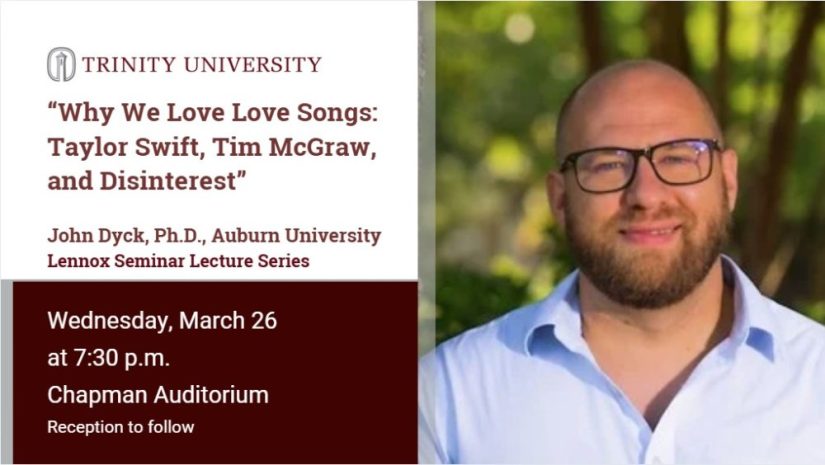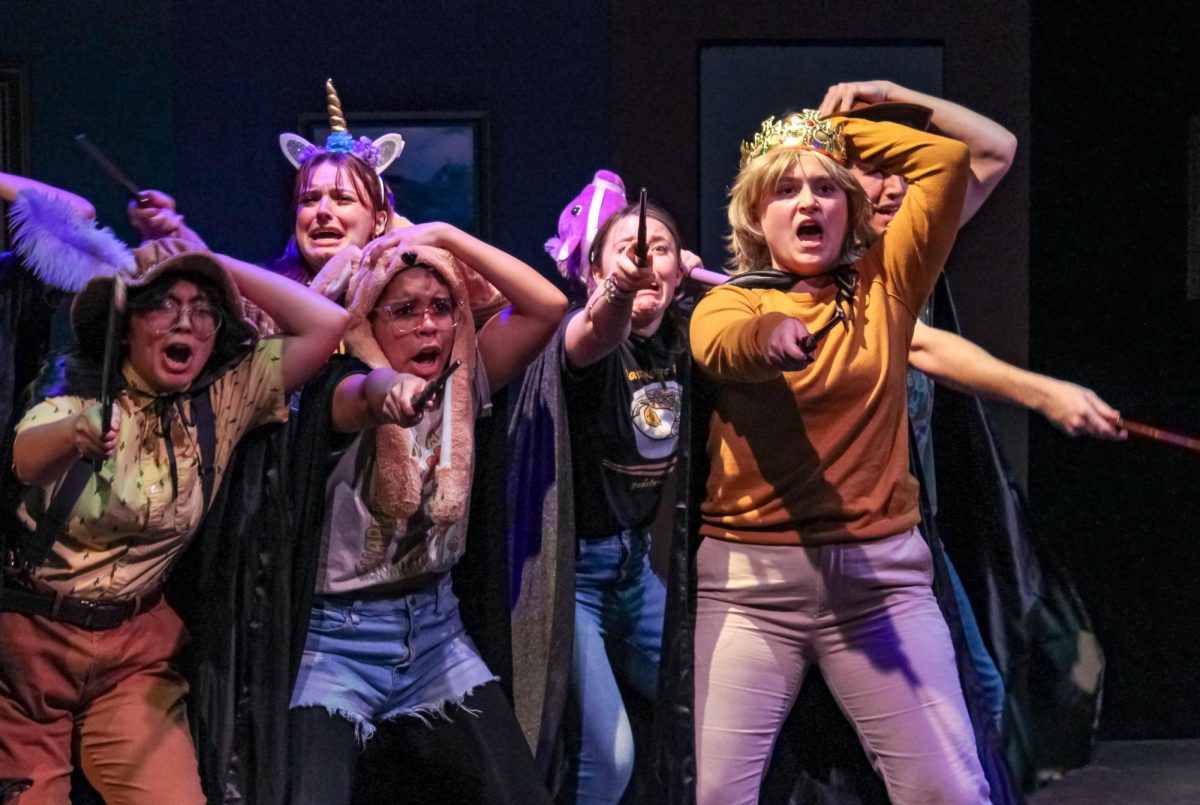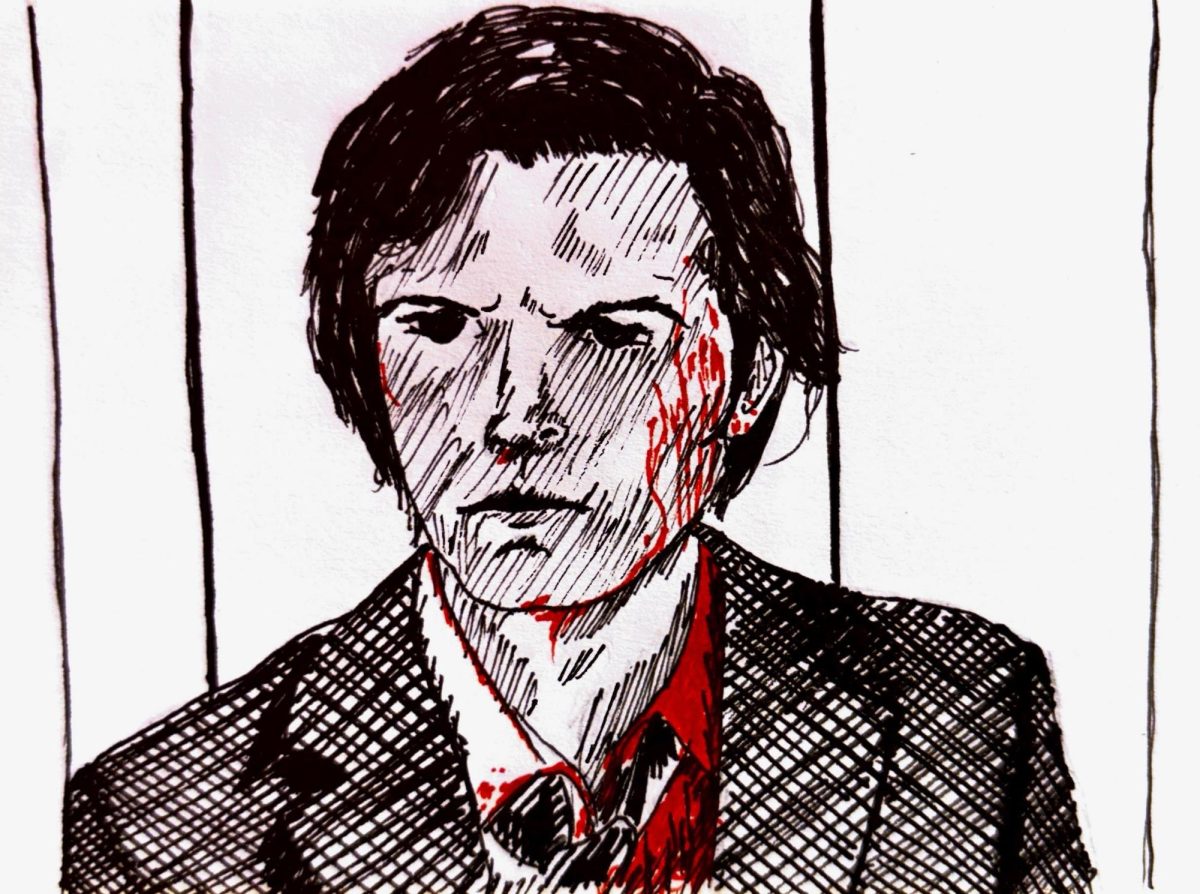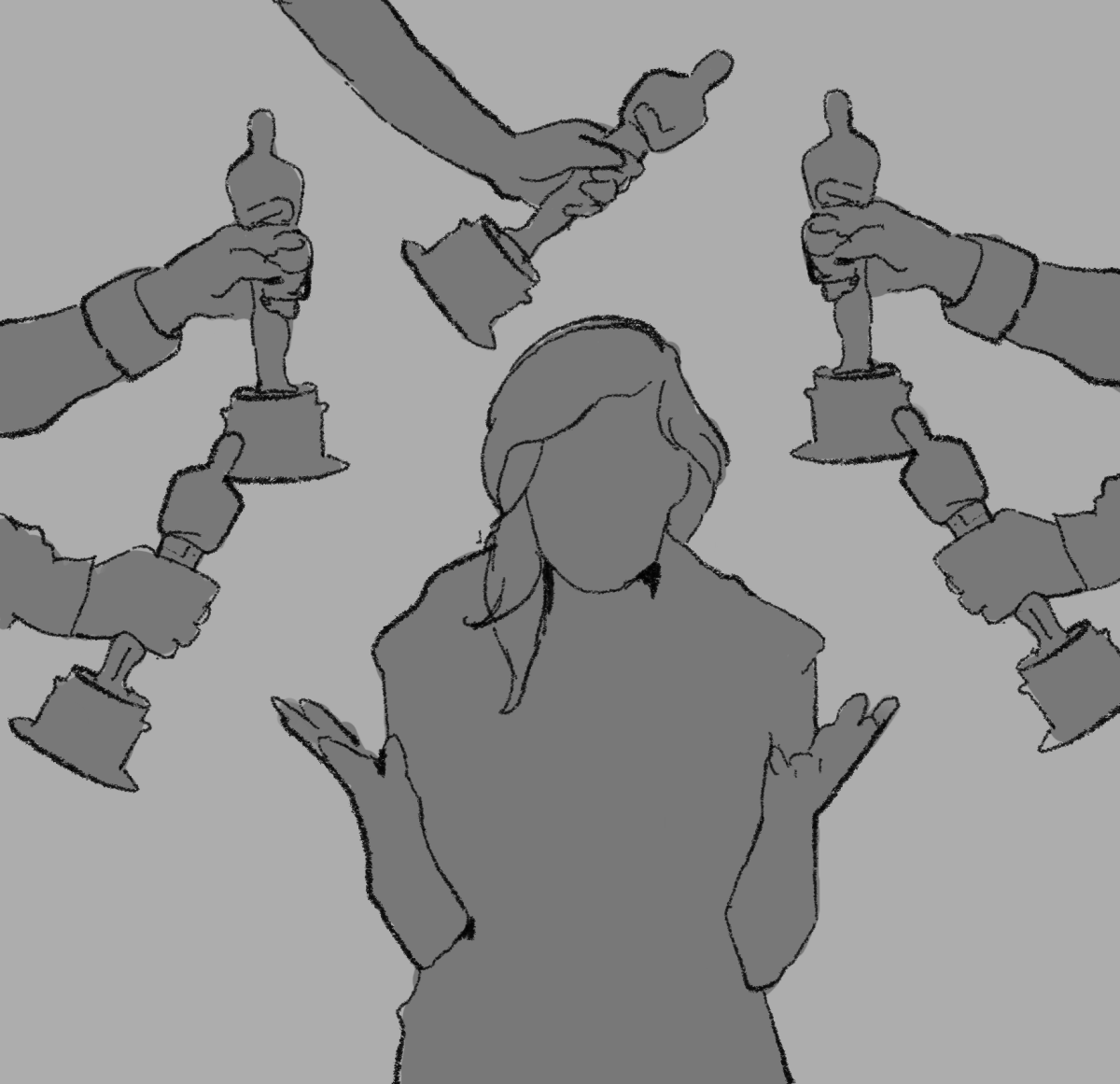At Trinity, film isn’t just entertainment – it’s an essential tool for education and personal growth. Professors share their passion for cinema, discussing how movies shape not only our cultural understanding but also our perspectives on society and identity. From classic film noir to contemporary social commentary, these educators highlight the impact of storytelling on and off the screen.
Patrick Keating, communication professor, is an avid movie watcher and film studies expert. Keating has adored cinema for as long as he can remember.
“I have been interested in film ever since I was young. When I was a teenager, I would watch all of the classic movies I could find,” Keating said. “Then, I was a film studies major in undergrad, so I was pretty interested in film studies all throughout college. I then went to film school and did film production … and then eventually I got a PhD in film history.”
Right now, Keating’s favorite cinematic style is film noir — he even wrote a book about it.
“My most recent book is called ‘Film Noir and the Arts of Lighting’,” Keating said. “It includes an analysis of … 11 classic movies. I would recommend any of these. I’ll mention ‘Sorry Wrong Number’ because we watched that in my complex narratives class.”
Although Keating prefers 1940s Hollywood films, contemporary cinema impresses him greatly.
“There are plenty of great movies being made now,” Keating said. “I’m just thinking of the last Oscars. I knew ‘Nickleboys’ didn’t have a shot, but I was pulling for ‘Nickleboys’ — I think that’s terrific. But, you know, I was impressed with ‘Anora’ in a lot of ways.”
Similarly to Keating, Norma Elia Cantú, Murchison distinguished professor of the humanities, is a big fan of the classics. She recounted her favorite movies from the genre and others.
“From the classics, of course, ‘Casablanca’ and ‘Citizen Kane,’ are two of my favorites,” Cantú said.
In addition, Cantú recommended watching films about the US-Mexico border, as that is her area of expertise.
“‘Chulas Fronteras’ by Chris Strachwitz. I guess you could call it a folk music film about the border,” Cantú said. “It’s a documentary about music. Fabulous.”
Cantú also admires the work of Alex Rivera and his wife Christina Ibarra. Although their films are often fictional, they serve as social commentary on real-life issues such as immigration and labor.
“One of the films he made was called ‘Infiltrators,’ where he got people to … infiltrate the detention center and pretend that they are undocumented, and they filmed inside,” Cantú said. “And then he also has a speculative fiction called ‘Sleep Theater.’ You should watch that.”
Similarly, Tim Appignani, visiting assistant professor of communication, admires films that offer social commentary.
“There was a movie called ‘The Long Shot’ that I really dug,” Appignani said. “It was a romantic comedy that really addressed a lot of the deficiencies in other romantic comedies.”
For the same reasons, he recommends giving ‘Good Boys’ a watch.
“I wish everyone would watch ‘Good Boys,’” Appignani said. “I think that it’s super important, it’s funny … but it’s also about healthy masculinity.”
In addition, Appignani explained that films can majorly shape the viewer.
“Media is the single most powerful influence on people in this country in the way that they think and their ideologies,” Appignani said. “Movies have a really powerful role in that because you identify strongly with it.”
While Cantú agrees that movies can spread positive messages, she said there’s a flipside.
“When you go to see a movie, you inhabit another world, and you can be educated,” Cantú said. “On the other hand, [movies] could also be used for propaganda and other reasons.”
Appignani agreeed that some films perpetuate problematic norms. He is critical of many narratives that appear in the mainstream.
“The industry is really profit-focused, and it’s gonna replicate any kind of success that it sees,” Appignani said. “We also see a really huge rise in more traditional messaging for things like the Hallmark movies. They have a very flunk, intense sort of princesses theme … and more torture-porny type stuff.”

